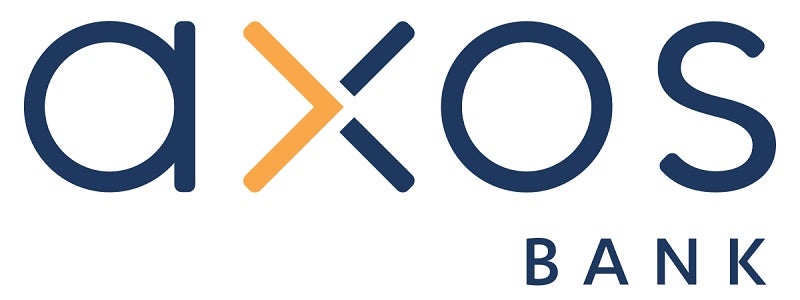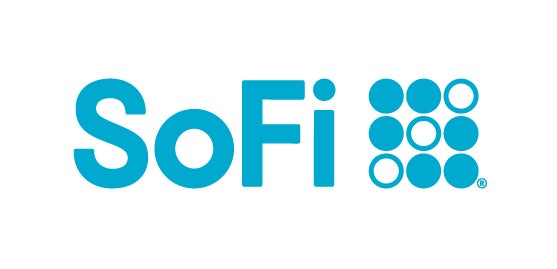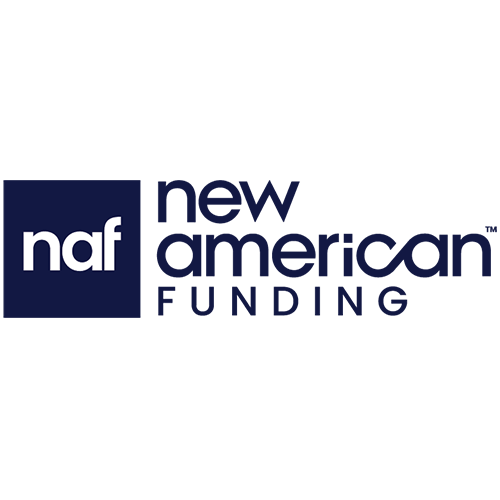A mortgage refinance loan is a new home loan that replaces your old one. Refinancing could be a smart move if it helps you improve your financial situation or your quality of life.
Our 8 best mortgage refinance lenders
| Lender | Best For | Next Steps |
|---|---|---|

4.0/5
Our ratings are based on a 5 star scale.
5 stars equals Best.
4 stars equals Excellent.
3 stars equals Good.
2 stars equals Fair.
1 star equals Poor.
We want your money to work harder for you. Which is why our ratings are biased toward offers that deliver versatility while cutting out-of-pocket costs.
4.0/5
Our ratings are based on a 5 star scale.
5 stars equals Best.
4 stars equals Excellent.
3 stars equals Good.
2 stars equals Fair.
1 star equals Poor.
We want your money to work harder for you. Which is why our ratings are biased toward offers that deliver versatility while cutting out-of-pocket costs.
|
Best For
Digital experience |
|

5.0/5
Our ratings are based on a 5 star scale.
5 stars equals Best.
4 stars equals Excellent.
3 stars equals Good.
2 stars equals Fair.
1 star equals Poor.
We want your money to work harder for you. Which is why our ratings are biased toward offers that deliver versatility while cutting out-of-pocket costs.
5.0/5
Our ratings are based on a 5 star scale.
5 stars equals Best.
4 stars equals Excellent.
3 stars equals Good.
2 stars equals Fair.
1 star equals Poor.
We want your money to work harder for you. Which is why our ratings are biased toward offers that deliver versatility while cutting out-of-pocket costs.
|
Best For
Streamlined online process |
|

5.0/5
Our ratings are based on a 5 star scale.
5 stars equals Best.
4 stars equals Excellent.
3 stars equals Good.
2 stars equals Fair.
1 star equals Poor.
We want your money to work harder for you. Which is why our ratings are biased toward offers that deliver versatility while cutting out-of-pocket costs.
5.0/5
Our ratings are based on a 5 star scale.
5 stars equals Best.
4 stars equals Excellent.
3 stars equals Good.
2 stars equals Fair.
1 star equals Poor.
We want your money to work harder for you. Which is why our ratings are biased toward offers that deliver versatility while cutting out-of-pocket costs.
|
Best For
No lender fees and jumbo loans |
|

4.0/5
Our ratings are based on a 5 star scale.
5 stars equals Best.
4 stars equals Excellent.
3 stars equals Good.
2 stars equals Fair.
1 star equals Poor.
We want your money to work harder for you. Which is why our ratings are biased toward offers that deliver versatility while cutting out-of-pocket costs.
4.0/5
Our ratings are based on a 5 star scale.
5 stars equals Best.
4 stars equals Excellent.
3 stars equals Good.
2 stars equals Fair.
1 star equals Poor.
We want your money to work harder for you. Which is why our ratings are biased toward offers that deliver versatility while cutting out-of-pocket costs.
|
Best For
Digital refinance application process |
|

5.0/5
Our ratings are based on a 5 star scale.
5 stars equals Best.
4 stars equals Excellent.
3 stars equals Good.
2 stars equals Fair.
1 star equals Poor.
We want your money to work harder for you. Which is why our ratings are biased toward offers that deliver versatility while cutting out-of-pocket costs.
5.0/5
Our ratings are based on a 5 star scale.
5 stars equals Best.
4 stars equals Excellent.
3 stars equals Good.
2 stars equals Fair.
1 star equals Poor.
We want your money to work harder for you. Which is why our ratings are biased toward offers that deliver versatility while cutting out-of-pocket costs.
|
Best For
Diverse loan offerings and relationship discounts |
|

4.5/5
Our ratings are based on a 5 star scale.
5 stars equals Best.
4 stars equals Excellent.
3 stars equals Good.
2 stars equals Fair.
1 star equals Poor.
We want your money to work harder for you. Which is why our ratings are biased toward offers that deliver versatility while cutting out-of-pocket costs.
4.5/5
Our ratings are based on a 5 star scale.
5 stars equals Best.
4 stars equals Excellent.
3 stars equals Good.
2 stars equals Fair.
1 star equals Poor.
We want your money to work harder for you. Which is why our ratings are biased toward offers that deliver versatility while cutting out-of-pocket costs.
|
Best For
Diverse offerings |
Reviews of the best mortgage refinance lenders
Here are our top choices for mortgage refinance lenders in 2025.
For digital experience: Guaranteed Rate Mortgage
Best for: Digital experience
Guaranteed Rate Mortgage
Bottom Line
Guaranteed Rate does a great job with ease of usability, offering comprehensive loan information during your research phase, plus the option to securely upload and digitally sign loan documents when you're ready to apply. The lender publishes its rates for different loans online, making it easy to compare options.
Min. Credit Score
- 620
Min. Down Payment
- 0%-3.5%
Key Features
- Customer-friendly website
- Technology to ease the process
- Neighborhood data
Loan Types
- Conventional
- FHA
- VA
- Jumbo
- Interest Only
Fixed Rate Terms
- 30y, 15y
Adjustable Rate Terms
- 5/6, 7/6, 10/6
Pros
- Excellent online rate tool
- Digital mortgage application
- Down payment assistance programs
- Special low rate program for highly qualified borrowers
Cons
- Credit check fee
Why is Guaranteed Rate Mortgage one of our best mortgage refinance lenders? Guaranteed Rate Mortgage offers competitive refinance rates, an online application, and a user-friendly website. We like Guaranteed Rate's transparency; it's easy for borrowers to find current refinance interest rates and annual percentage rates (APRs) by loan type on Guaranteed Rate's website. You can get personalized refinance rates by submitting your contact information.
Fees and closing costs:
- Application fees: $1,640, waived for VA loans
- Origination fees: Varies
- Underwriting fees: Varies
For streamlined online process: Rocket Mortgage®
Best for: Streamlined online process
Rocket Mortgage®
Bottom Line
Rocket Mortgage led the transition to a full digital experience and online-only applications. Its seamless process is one reason Rocket Mortgage is consistently ranked in the top two on J.D. Power's customer service rankings. Rocket Mortgage has a robust and high-quality app that makes it easy to use.
Min. Credit Score 580 FHA 620 other mortgage products 680 Jumbo
- 580 - 680
Min. Down Payment 0%-3.5% (FHA & VA loans) 3% (conventional loans)
- 0% - 3%
Key Features
- Online-only
- Low down payment options
- Opportunities to get cash toward closing
- High customer satisfaction ratings
Loan Types
- Conventional
- FHA
- VA
- Jumbo
Fixed Rate Terms
- 8 - 30 years (Customizable)
Adjustable Rate Terms
- 10/6, 7/6, 5/6
Pros
- Top-rated customer satisfaction
- High quality app
- Low down payment options
- Services most of its loans
Cons
- No USDA loan
Why is Rocket Mortgage® one of our best mortgage refinance lenders? Rocket Mortgage®'s award-winning customer service helps it stand out from other refinance lenders. Also, its home loan experts are available seven days a week to answer your questions. We like that Rocket Mortgage®'s current refinance rates and APR are easily accessible on its website.
Fees and closing costs:
- Application fees: $0
- Origination fees: Varies
- Underwriting fees: Varies
For no lender fees and jumbo loans: Axos Bank Mortgage
Best for: No lender fees and jumbo loans
Axos Bank Mortgage
Bottom Line
No lender fees for qualified existing customers, along with a fully online experience make it a top pick. One of the rare lenders to offer jumbo loans up to $30 million. Axos also offers a mortgage with rewards, giving up to 3% cash back every year.
Min. Credit Score 580 FHA loans 620 other mortgage products
- 620
Min. Down Payment
- 3.5%
Key Features
- Lender fee waiver for qualified existing customers
- Jumbo and super jumbo loans
- HELOC offerings
Loan Types
- Conventional
- FHA
- VA
- Jumbo
- Interest Only
Fixed Rate Terms
- 10-30y
Adjustable Rate Terms
- N/A
Pros
- No lender fee for customers
- Cash back credit on mortgage payments
- Hard-to-find loan options
- Full-service bank
- Rate quote tool
Cons
- Lender fee for non-customers
- No in-person service
- Cumbersome customer service
Why is Axos Bank Mortgage one of our best mortgage refinance lenders? Axos Bank Mortgage offers competitive refinance rates and a fully online application process, and fee discounts to eligible bank account holders. Whether you're looking to refinance a fixed-rate mortgage to a lower interest rate, want to get rid of your private mortgage insurance (PMI), or want to get a cash-out refinance to help consolidate debt, Axos Bank Mortgage has options for you.
Fees and closing costs:
- Application fees: $0
- Origination fees: $0 for eligible Axos bank account holders
- Underwriting fees: Varies
For a digital refinance application process: SoFi® Mortgage
Best for: Digital refinance application process
SoFi® Mortgage
Bottom Line
SoFi® has a complete digital mortgage and refinance application process. It offers membership discounts and a modern experience. It's a potential fit for self-employed borrowers, based on SoFi®'s nontraditional underwriting process that focuses on a combination of credit history, income, and assets.
Min. Credit Score
600
Min. Down Payment 0% VA loan 3% first-time borrowers 3.5% FHA loan 5% everyone else
- 0% - 5%
Key Features
- Named the Best Mortgage Lender for Discounts in 2024 by CNBC Select
- Extended rate lock option allows to you lock in today's rate for more than 45 days
- On-time close guarantee offer is backed by $10,000
- A dedicated mortgage loan officer to help you through the process
Loan Types
- Conventional
- FHA
- VA
- Jumbo
Fixed Rate Terms
- 10y, 15y, 20y, 30y
Adjustable Rate Terms
- 10/6, 7/6, 5/6
Pros
- Member benefits
- Online application
- Custom rate with soft credit inquiry
Cons
- Limited loan options
- No USDA loan
Why is SoFi® Mortgage one of our best mortgage refinance lenders? One of the best things about SoFi® is its package of member benefits, including personalized financial planning advice, referral bonuses, home loan and estate planning discounts, and exclusive travel offers. Its current rates are easily accessible online, and you can view a personalized rate without affecting your credit score.
Fees and closing costs:
- Application fees: $0
- Origination fees: $1,495 ($995 for SoFi members)
- Underwriting fees: $0
For diverse loan offerings and relationship discounts: Bank of America Mortgage
Best for: Diverse loan offerings and relationship discounts
Bank of America Mortgage
Bottom Line
Bank of America is one of the largest banks in the U.S., offering a wide variety of financial products in addition to its mortgages. Few lenders can match the lineup of loan products and terms. Bank of America offers a Preferred Rewards program for borrowers who have bank accounts at the bank and investment accounts at Merrill. Borrowers can qualify for an origination fee or interest rate reduction based on their eligible tier at the time of application.
Min. Credit Score
- Undisclosed
Min. Down Payment 0% VA loans 3.5% FHA 3% Conventional loans, Affordable Loan Solution® mortgage, Freddie Mac Home Possible® mortgage 5% Other loans
- 0%-3%
Key Features
- Wide range of financial products
- Preferred Rewards program
- Ability to apply entirely online
- Loans up to $2 million
Loan Types
- Conventional
- FHA
- VA
- Jumbo
Fixed Rate Terms
- 30y, 20y, 15y
Adjustable Rate Terms
- 10/6, 7/6, 5/6
Pros
- Low down payment mortgages
- Down payment assistance
- Competitive HELOC
- Transparent mortgage rates
Cons
- No USDA loan
- No non-QM loans
Why is Bank of America Mortgage one of our best mortgage refinance lenders? Bank of America Mortgage's refinance rates often trend lower than the national average. Eligible members of Bank America's Preferred Rewards Programs may be able to get an even lower rate or a discount on origination fees. The reduction amount is based on rewards tiers, and range from $200 off the origination fee to a 0.37% discount on the interest rate.
Fees and closing costs:
- Application fees: $562-$1,062 collected prior to closing
- Origination fees: Varies
- Underwriting fees: Undisclosed
For diverse offerings: New American Funding
Best for: Diverse offerings
New American Funding
Bottom Line
New American Funding is one of the largest privately owned direct mortgage lenders in the country. The lender offers competitive rates. Its selection of loans and customizable loan terms is broader than many other lenders'. The lender also has a highly efficient lending process that allows for quicker closing times. What's more, New American can be a good solution for people building credit and wanting a good mortgage. It focuses on lending to underserved communities.
Min. Credit Score 500 FHA 620 other mortgage products
- 500 - 620
Min. Down Payment 0% VA 3% Conventional 3.5% FHA
- 0% - 3.5%
Key Features
- Fast service
- One of the top lenders to Hispanic and Black borrowers.
- Offer customizable loans, including home addition loans
- High customer satisfaction, A BBB rating
Loan Types
- Conventional
- FHA
- VA
- USDA
- Jumbo
- Interest Only
Fixed Rate Terms
- Customizable (8 - 40 years)
Adjustable Rate Terms
- 10/1 and 10/6, 7/1 and 7/6, 5/1 and 5/6
Pros
- Variety of loan options
- Resources for first-time home buyers
- Spanish-speaking
Cons
- Application is not fully digital
- Must submit your email to get a rate
Why is New American Funding one of our best mortgage refinance lenders? New American Funding's website is well-designed and includes learning resources and mortgage calculators to help borrowers make informed decisions. Borrowers can easily find New American Funding's current refinance rates and information about its refinance options online. The lender offers a variety of refinance solutions, including cash-out refinance, HELOC, FHA streamline refinance, and VA streamline or cash-out refinance.
Fees and closing costs:
- Application fees: $0 for pre-approval
- Origination fees: Varies
- Underwriting fees: Varies
How to pick the right mortgage refinance lender for you
Choosing the right mortgage lender comes down to figuring out the size of loan you need (and how much you qualify for) and comparing lenders.
1. Determine the loan amount you need
Before you ask a lender how much it'll loan you, get an idea of how much you want to ask for. This will depend on A.) your reasons for refinancing and B.) your budget.
For instance, if you only want to get rid of your PMI or take your ex spouse's name off the loan, you'll need to borrow just enough to pay off your current mortgage.
If you want to remodel your kitchen, you might want to shop around and get a sense for how much you'll spend.
2. Find out your credit score
Check your credit score to get an idea of the rates you're likely to qualify for (in general, the higher the score, the better the rates). Use a free credit score website or log into your own bank or credit card account to see if you can find it there for free.
Then you can check lender websites or give them a call, and ask what rate is available for someone with your credit score.
3. Compare refinance mortgage lenders
Get pre-approval from lenders who do a soft credit check that doesn't affect your score.
Once you narrow down your list of lenders, don't be afraid to submit a formal application with two or three (or more) so you can make sure you're getting the best deal. You can protect your credit score by doing your mortgage shopping within a two-week time frame
4. Compare loan estimates and choose one
Each lender should give you the same document -- it's called a loan estimate -- showing all the details about the loan you're being offered (rate, fees, loan amount, and so on).
The interest rate is important, but it's even more important to compare the APR, which is the cost over one year, including interest and all fees. Sometimes, lenders with very low interest rates have very high fees (and vice versa), so this is the best way to compare loans.
Once you're ready to accept an offer, you'll need to let that lender know you want to proceed.
5. Close out communications with the other lenders
It's polite to let the other lenders know that you've decided not to move forward with them. Doing this could also help you put a stop to the many follow-up and marketing calls you're likely to receive until they know you've moved on.
What is a mortgage refinance?
Refinancing a mortgage (or any other type of loan) refers to the process of obtaining a new loan -- typically with better terms -- for the purpose of replacing an existing one.
You can refinance your existing home loan balance with one of our best refinance lenders. Or, if you have significant equity in the home, you could choose to get a refinance loan for a higher amount and get some cash in the process.
Why should I refinance with one of the best mortgage lenders?
Refinancing your mortgage is a great way to access your home equity or change the financial circumstances around your mortgage. It can be a powerful weapon for a homeowner who's kept up with their mortgage payments.
In fact, you might not even have to leave your house or pick up a phone to complete the entire refinancing process! Some of our favorite mortgage companies that offer refinance loans have streamlined the process, and you might be able to refinance your mortgage entirely online.
Here are a few reasons you may want to refinance your mortgage.
Reduce your monthly mortgage payment
If you're 10 years into a 30-year mortgage loan, you can refinance the remaining amount to spread those 20 years of payments across a 30-year loan term, lowering your monthly payment. (If you do this, you'll increase the total amount of interest you pay.) Check out our mortgage calculator to see how much you might pay.
Lock in a lower interest rate
Mortgage interest rates have risen over the past few years, so many homeowners won't be able to lower their interest rate by refinancing. But if you can get a new mortgage with a lower interest rate (usually a half percentage point or more), it can make good financial sense to refinance. Even a seemingly small change can make a big difference.
For example, you'll pay $47,880 more with a 7% rate than a 6.5% interest rate on a $400,000 30-year mortgage over the term of the loan. It's also worth noting that even if market interest rates haven't moved much, you may be able to get a lower rate if your credit score has improved significantly since you got your current mortgage.
Convert an adjustable-rate mortgage (or ARM) to a fixed-rate mortgage
Adjustable-rate mortgages are interest-rate sensitive, so they can start to get pretty expensive if interest rates increase after you close on your loan. A refinance is a great opportunity to lock in a fixed-rate mortgage for the remainder of your home loan, and can be an especially good idea when interest rates fall.
Get rid of mortgage insurance
If you originally put less than 20% down or used an FHA loan, you probably had to add mortgage insurance to your loan. If your home is now worth significantly more than you paid for it, or if you've paid down a considerable portion of your loan balance, refinancing could allow you to drop mortgage insurance and lower your payment, even if interest rates haven't fallen much.
Tap home equity to pay for a large project (like an addition or a remodel)
A refinance isn't the only way to get funds for a home improvement project. But it's a way to borrow against your home equity and still end up with just one monthly payment. In contrast, a home equity line of credit (or second mortgage) would leave you with two separate payments.)
If you have sufficient equity in your home, a cash-out refi lets you borrow enough to pay off your current mortgage, plus extra. You then get money back from the lender and could use it pretty much any way you like.
Make sure you're refinancing with one of the best refinancing lenders not just because you can, but because you need it to achieve your financial goals.
TIP
If you would like to learn about some of the major players in the mortgage industry, check out Motley Fool Money's research piece on the largest mortgage lenders.
What are the risks of refinancing?
The main risk of refinancing is that it won't be as worthwhile as you think. We'll get into this a bit more in the next section, but a lower interest rate on your mortgage only makes sense if it saves you money relative to the cost of the loan itself.
It can also be risky if you're refinancing from an adjustable-rate mortgage to a fixed-rate loan, or vice versa. For example, let's say you have a fixed-rate mortgage at a 7% APR and you refinance to an adjustable-rate mortgage that has a 5% APR for five years, but then adjusts annually after that. If interest rates spike, you can end up paying significantly more interest over time than you would if you had simply kept your existing mortgage.
What is a good refinance rate?
The short answer is it depends. Your refinancing rate depends on market conditions, your FICO® Score, and the loan-to-value ratio, or LTV ratio of your home. When refinancing with the best refinance lenders, your goal should be to get an interest rate that is in line with or better than the current market average for people with a similar credit score.
Should you refinance?
Refinancing isn't right for everyone, so it depends on your situation. It largely depends on how much it costs to refinance and how long you plan to stay in your home.
One common misconception is that refinancing is free or that it costs the same with every lender. And this isn't the case at all -- refinancing comes with closing costs, just like when you obtain a mortgage to buy a home. Borrowers should expect closing costs in the thousands when refinancing.
To be sure, paying the closing costs can still be well worth it if you're planning to stay in your home long enough so that the savings outweigh the cost.
An example:
- Let's say that you can lower your monthly mortgage payment by $100 if you refinance, but it will cost you $4,000 in various fees to get the loan.
- Dividing $4,000 by $100 shows that you would need to own the home for at least 40 months to break even on the cost of refinancing. If you don't, then you'll save more by not spending that $4,000.
- Unless you're confident that you'll own the home for more than 40 months, refinancing might not be worth it.
To determine if refinancing is the right decision for you, check out our guide on whether refinancing is worth it.
In summary, our top mortgage refinance lenders:
| Lender | Best For | Next Steps |
|---|---|---|

4.0/5
Our ratings are based on a 5 star scale.
5 stars equals Best.
4 stars equals Excellent.
3 stars equals Good.
2 stars equals Fair.
1 star equals Poor.
We want your money to work harder for you. Which is why our ratings are biased toward offers that deliver versatility while cutting out-of-pocket costs.
4.0/5
Our ratings are based on a 5 star scale.
5 stars equals Best.
4 stars equals Excellent.
3 stars equals Good.
2 stars equals Fair.
1 star equals Poor.
We want your money to work harder for you. Which is why our ratings are biased toward offers that deliver versatility while cutting out-of-pocket costs.
|
Best For
Digital experience |
|

5.0/5
Our ratings are based on a 5 star scale.
5 stars equals Best.
4 stars equals Excellent.
3 stars equals Good.
2 stars equals Fair.
1 star equals Poor.
We want your money to work harder for you. Which is why our ratings are biased toward offers that deliver versatility while cutting out-of-pocket costs.
5.0/5
Our ratings are based on a 5 star scale.
5 stars equals Best.
4 stars equals Excellent.
3 stars equals Good.
2 stars equals Fair.
1 star equals Poor.
We want your money to work harder for you. Which is why our ratings are biased toward offers that deliver versatility while cutting out-of-pocket costs.
|
Best For
Streamlined online process |
|

5.0/5
Our ratings are based on a 5 star scale.
5 stars equals Best.
4 stars equals Excellent.
3 stars equals Good.
2 stars equals Fair.
1 star equals Poor.
We want your money to work harder for you. Which is why our ratings are biased toward offers that deliver versatility while cutting out-of-pocket costs.
5.0/5
Our ratings are based on a 5 star scale.
5 stars equals Best.
4 stars equals Excellent.
3 stars equals Good.
2 stars equals Fair.
1 star equals Poor.
We want your money to work harder for you. Which is why our ratings are biased toward offers that deliver versatility while cutting out-of-pocket costs.
|
Best For
No lender fees and jumbo loans |
|

4.0/5
Our ratings are based on a 5 star scale.
5 stars equals Best.
4 stars equals Excellent.
3 stars equals Good.
2 stars equals Fair.
1 star equals Poor.
We want your money to work harder for you. Which is why our ratings are biased toward offers that deliver versatility while cutting out-of-pocket costs.
4.0/5
Our ratings are based on a 5 star scale.
5 stars equals Best.
4 stars equals Excellent.
3 stars equals Good.
2 stars equals Fair.
1 star equals Poor.
We want your money to work harder for you. Which is why our ratings are biased toward offers that deliver versatility while cutting out-of-pocket costs.
|
Best For
Digital refinance application process |
|

5.0/5
Our ratings are based on a 5 star scale.
5 stars equals Best.
4 stars equals Excellent.
3 stars equals Good.
2 stars equals Fair.
1 star equals Poor.
We want your money to work harder for you. Which is why our ratings are biased toward offers that deliver versatility while cutting out-of-pocket costs.
5.0/5
Our ratings are based on a 5 star scale.
5 stars equals Best.
4 stars equals Excellent.
3 stars equals Good.
2 stars equals Fair.
1 star equals Poor.
We want your money to work harder for you. Which is why our ratings are biased toward offers that deliver versatility while cutting out-of-pocket costs.
|
Best For
Diverse loan offerings and relationship discounts |
|

4.5/5
Our ratings are based on a 5 star scale.
5 stars equals Best.
4 stars equals Excellent.
3 stars equals Good.
2 stars equals Fair.
1 star equals Poor.
We want your money to work harder for you. Which is why our ratings are biased toward offers that deliver versatility while cutting out-of-pocket costs.
4.5/5
Our ratings are based on a 5 star scale.
5 stars equals Best.
4 stars equals Excellent.
3 stars equals Good.
2 stars equals Fair.
1 star equals Poor.
We want your money to work harder for you. Which is why our ratings are biased toward offers that deliver versatility while cutting out-of-pocket costs.
|
Best For
Diverse offerings |
Ask the experts

Scott Deacle
Associate Professor of Business and Economics and Department Chair at Ursinus College
When should someone consider refinancing their mortgage?
You should consider refinancing when you can obtain an interest rate that is substantially lower than the one you are paying. You want to refinance if you expect to save more from lower interest payments than the fees you pay for the refinancing. This requires you to estimate how long you will stay in your home. If you plan to move soon, then you won't be paying lower interest for long, so you won't offset the refinancing fees. But if you plan to stay in your house for a long time, then you will save more in interest over time than you pay for the refinancing. There are free refinance calculators on the web that can help you figure out how long it will take to offset the refinancing fee.
A second reason to refinance is if your income has increased and you can afford a larger payment. If so, you might benefit from refinancing from a longer-term mortgage (say, 30 years) to a shorter-term mortgage (say, 10 years). With the shorter-term mortgage, you have higher payments, but the interest that you pay over the life of the loan will be much lower.
A third reason is that your credit-worthiness has improved. This can happen if your credit score improves, your income dramatically increases, or your home increases substantially in value. You can lower your rate substantially and get better terms in these scenarios.
How often should someone refinance their mortgage?
It depends on interest rates. There's usually no reason to refinance when interest rates are rising. But if they are falling, as they generally have since 2007, it might make sense to refinance every three or four years, depending on the size of your loan and its time to maturity. You need to check the calculators to see how much you can save and then determine if you will remain in your home long enough to offset the refinancing fees.
A pitfall that is easy to overlook is that you can unwittingly end up paying far more interest if you continually refinance mortgages, even though you've lowered monthly payments. Consider someone who refinances his or her mortgage every three years and gets a new 30-year mortgage each time. After the third refinancing, that person has much lower payments. But that person also has 30 years left on the mortgage and could end up taking 39 years to be free of debt on their house. The extra nine years of payments mean nine more years of interest. At some point, the borrower should pay more than the minimum monthly payments -- to speed the retirement of the debt and reduce total interest payments -- or refinance into a short-term mortgage.
What are some tips for people wondering how to refinance their mortgage?
It's very easy to apply for a refinance. Many lenders have easy web-based refinancing sites. You should certainly obtain multiple quotes. Check out the big national lenders, but also check out local lenders and the bank or credit union at which you have a checking account. They may give you a better deal if you are an existing customer. Make use of calculators to help you compare rates and to study the impact of "points" on your overall costs.
Before applying to refinance, take advantage of your guaranteed-by-law free credit report to make sure your credit history is accurate. Your credit score plays an important role in determining your interest rate.
In addition, mortgage lenders often encourage refinancing customers to borrow to pay their refinancing fee. Be careful. This adds to your overall debt burden and increases the interest you will pay over the life of the loan. Ideally, you will pay the refinance fee from your savings so you don't increase the principal on your mortgage.

Michael Manahan
Lecturer at California State University Dominguez Hills, Author and Consultant
When should someone consider refinancing their mortgage?
The simple answer is whenever the savings in interest rates reasonably offset the closing costs of a new mortgage. However, there are other reasons to refinance even if you cannot get a better interest rate. If you have a variable rate on your mortgage, your mortgage payment may go up if interest rates rise. Refinancing with a fixed-rate mortgage will eliminate this risk. If you have paid off some of your mortgage, refinancing should reduce your monthly payment and leave more cash for vacations or living expenses. This option is a good option for someone whose income is not expected to increase (people living on some sort of fixed income). Finally, if you have equity in your home, you could refinance and take out cash for home improvements or investments, such as buying a rental property.
How often should someone refinance their mortgage?
You should refinance your mortgage when rates fall below the rate you are paying, but what if rates keep falling? Should you keep refinancing? That is not an easy question to answer because when you refinance you may get a better interest rate, but refinancing costs money. There are appraisal fees, closing costs, title fees, escrow fees, and sometimes points. All these charges can add up to thousands of dollars. Also, when you refinance there is a good chance your credit score will drop, as "new credit" and "credit inquiries" are two things that negatively affect your credit score. If you need credit for anything else, such as a car loan, bathroom or kitchen remodel, or anything else that is paid with consumer credit, you may find you will be charged a higher rate of interest on those loans. Also, when you do refinance the underwriter wants to see your previous loan "seasoned" which means you have made the payments on time for a certain period. Depending on the underwriter, that could be anywhere from six to 12 months. If you apply to refinance too soon, you may not get as good of an interest rate as you hoped.
What are some tips for people wondering how to refinance their mortgage?
I have refinanced properties with dozens of lenders and mortgage brokers over the years. I'd love to tell you there is some secret to make applying for and getting a mortgage easier. If there is, I haven't found it. But to the degree you can make it a little easier, there are some things you can do. First, have your paperwork ready. The lender is going to want tax returns, pay stubs, bank statements, 401(k) account statements, mortgage statements, brokerage account statements, and possibly more. Download electronic copies of all these documents so when asked, you can quickly upload them or email them to the lender. Second, check your credit report. The lender will want you to explain any negative aspect of your credit report and any credit inquiry that has been made recently. Third, when choosing to use a lender or mortgage broker, don't be fooled by all the low interest rate ads. The interest rate you are going to pay is based on the underwriter's assessment of your risk. I have an excellent credit score, excellent credit history, low amount of debt, good income, and reasonably high net worth. Yet I've never been able to get those rates they advertise. Finally, think about your style. Are you okay doing everything online and talking to whoever in the call center answers the phone or do you want a specific person handling your transaction whom you can reach out to with questions or to help you through the process?

Clifford Rossi
Executive-in-Residence and Professor of the Practice at the Robert H. Smith School of Business at the University of Maryland
When should someone consider refinancing their mortgage?
You should keep an eye on the level and possible direction of interest rates over time and compare that with the rate on your existing mortgage to see if there's a benefit from refinancing. Technically, when prevailing rates fall below your existing mortgage rate you may have an opportunity to effectively swap out your old mortgage with a new one at a lower rate. We call that a rate-and-term refinance. But you need to be mindful of the overall cost of refinancing to ensure you are truly getting an all-in lower rate. Specifically, pay attention to how many points and fees you are being asked to pay upfront if any, as that can reduce the benefit you'll get from just the lower rate.
You may also find that in some cases refinancing for a home renovation project might be a good idea if you have experienced a significant increase in the equity stake of your home which many homeowners have seen in the recent run up in home prices. We call this a cash-out refinance. That is, you can replace your existing home mortgage with a new one and actually take cash out of the property for improvements and the like. But these cash-out refinances can be risky so make sure to understand what the impact on your new mortgage payment and payment terms are before taking out such a refinance option.
Lastly, these days there's a better than ever chance that interest rates will rise than fall going forward so borrowers that currently have very low adjustable-rate mortgages (ARMs) may want to consider switching out at some point into a fixed-rate loan if they believe they will be in the home for some time in order to lock in a relatively low mortgage rate now as a hedge against potential future rate increases.
How often should someone refinance their mortgage?
It really depends on things like market conditions. For example, many years ago, mortgage rates were in a period of steady decline such that I had friends going through multiple refinances in a single year as many lenders were offering no-closing-cost refinances which meant that the borrower did not incur any costs for the new loan. Even when rates fell by as little as 25 basis points (0.25%) under those circumstances borrowers were incentivized to refinance. With more lenders offering electronic loan applications, the process to apply for a loan refinance has become more efficient, thus providing borrowers with potentially greater opportunities to act when rate conditions are favorable. Overall, there are no rules on how often one can refinance and certainly as long as the borrower continues to pay the mortgage as agreed it should not detrimentally affect their credit profile for a standard rate-and-term refinance.
What are some tips for people wondering how to refinance their mortgage?
The internet has substantially changed things for the better for borrowers compared to years ago. Now you can go to any of several websites that provide current mortgage rates, including Freddie Mac's Primary Mortgage Market Survey (PMMS), to get a sense of where mortgage rates for various products are. Once you determine whether current rates are lower than the rate you have now, then shop around with several lenders to see what you can get in terms of both rate and fees they will charge. Pay particular attention to those fees and points and make sure you get in writing exactly what the new loan terms and costs will be. Lenders must provide that to you.

Brian Adams
Associate Dean of Graduate Programs, Pamplin School of Business at the University of Portland
When should someone consider refinancing their mortgage?
Refinancing makes sense when the reduction in monthly mortgage payment (due to lower interest rates) is greater than the cost of refinancing the loan. The important variable here is the length of time you expect to remain in the home. Usually you would need to stay in the home for at least another three to five years for the reduction in loan payments to offset the refi fees.
Refinancing may also make sense if the homeowner can use the accrued equity in the house to reinvest in the house for maintenance and upgrades. Usually kitchen and bathroom remodels will add value to the home for the current homeowners when they sell.
How often should someone refinance their mortgage?
How often someone should refinance is up to them. If rates continue to decline and/or the homeowner can use the equity in the home to improve the value of the property, then there may be multiple opportunities to refinance.
What are some tips for people wondering how to refinance a mortgage?
When you are looking to refinance remember to negotiate fees as well as rate.

Chester S. Spatt
Professor of finance at Carnegie Mellon University's Tepper School of Business
When should someone consider refinancing their mortgage?
Refinancing is a forward-looking decision -- people should consider whether there would be sufficient potential savings in interest rates (enough of a drop in interest rates) over the remaining term of the existing loan, for example. The issue is whether interest rates have fallen sufficiently such that it is worth incurring the out-of-pocket costs and the reduction in the value of the prepayment option on the new loan compared to the old one.
How often should someone refinance their mortgage?
It is not a question of the frequency of refinancing, but whether interest rates have fallen sufficiently such that it is worth incurring the out-of-pocket costs and the reduction in the value of the prepayment option on the new loan.
What are some tips for people wondering how to refinance their mortgage?
The type of mortgage that makes sense going forward would depend upon how long the individual anticipated remaining in the property. Whether it makes sense to refinance depends upon the extent to which interest rates have declined.
FAQs
-
A mortgage refinance is the process of obtaining a new home loan for the purpose of replacing an existing loan. Refinances come in two general forms -- cash-out refinances allow borrowers to access some of their home equity, while rate-and-term refinances allow borrowers to simply take advantage of lower interest rates without changing the amount they owe.
-
- Reduce your monthly mortgage payment
- Lock in a lower interest rate
- Convert an adjustable-rate mortgage (or ARM) to a fixed-rate mortgage
- Borrow against your home equity to pay for a large expense (like medical bills or a renovation project)
- Get a loan that doesn't require mortgage insurance, once you've met the equity requirement (typically 20%)
-
If refinancing helps you accomplish your financial goals, improves your quality of life, or saves you money over the long run, it can be a smart idea. Just make sure that any fees you pay are justified by the benefits of refinancing.
We're firm believers in the Golden Rule, which is why editorial opinions are ours alone and have not been previously reviewed, approved, or endorsed by included advertisers. Motley Fool Money does not cover all offers on the market. Motley Fool Money is 100% owned and operated by The Motley Fool. Our knowledgeable team of personal finance editors and analysts are employed by The Motley Fool and held to the same set of publishing standards and editorial integrity while maintaining professional separation from the analysts and editors on other Motley Fool brands. Terms may apply to offers listed on this page.





